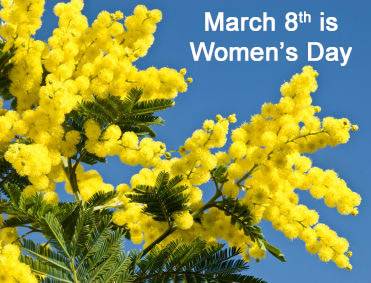Weblog Yuli Nazarov
Multi-terminal Josephson junctions as topological materials
if you ask me, is a splendid piece of research. I mentioned the submission earlier: now the preprint is available here.
Abstract:
Topological materials and their unusual transport properties are now at the focus of modern experimental and theoretical research. Their topological properties arise from the bandstructure determined by the atomic composition of a material and as such are difficult to tune and naturally restricted to ≤3 dimensions. Here we demonstrate that n-terminal Josephson junctions with conventional superconductors may provide a straightforward realization of tunable topological materials in n−1 dimensions. For n≥4, the Andreev subgap spectrum of the junction can accommodate Weyl singularities in the space of the n−1 independent superconducting phases, which play the role of bandstructure quasimomenta. The presence of these Weyl singularities enables topological transitions that are manifested experimentally as changes of the quantized transconductance between two voltage-biased leads, the quantization unit being 2e^2/(πℏ).
Renyi entropy in quantum engines
has been published in Physical Review B,
Phys. Rev. B 91, 104303 – Published 18 March 2015.
It has been submitted in August last year, the preprint is available here here.
We evaluate Renyi entropy flows from generic quantum heat engines (QHE) to a weakly-coupled probe environment kept in thermal equilibrium. We show that the flows are determined not only by heat flow but also by a quantum coherent flow that can be separately measured in experiment apart from the heat flow measurement. The same pertains to Shanon entropy flow. This appeals for a revision of the concept of entropy flows in quantum nonequlibrium thermodynamics.
No place for religion at TU Delft?
this is the title of the article in our university newspaper Delta. I did not see it on time, it’s three weeks old.
Pure vanity: I was interviewed for this article.:)
Fifth lecture Quantum Transport
On Friday, we have finished with the quantum circuit theories covering spin transport and transmission distribution. I was reasonably satisfied with the results, there was some interaction with the audience.
I’ve just began the Coulomb blockade: looks like I’ve circumvented half-lecture shift and will have to plan an extra lecture.
Mikhail Titov
has been visiting on Wednesday to give the Quantum Nanoscience seminar among other things. I know him from 2000 when he was a post doc with Carlo Beenakker. Now he is a faculty in Nijmegen.
His work now is mostly in bulk transport, graphene being the most popular and useful application. The talk was about linear magnetoresistance and sign-reversed Coulomb drag in compensated Hall regime. This may sound involved, however, it was quite a fun to follow and understand that all miracles of experiment can be solved if you think clearly, simply but beyond a beaten track.
I even had an urge to do some Coulomb drag: I used to like the phenomenon, yet last time I look at it was 1999.
Infernos
is the name of a European project I’m in. It’s about Maxwell demons. In fact, I always hesitated about the title: on my taste and beliefs, it’s not quite inspiring. However, the project so far went good.
Yet in the end of December I’ve volunteered to prepare a report for the project. In pre-Christmas mood, it seemed a task of a couple of days. Well, I finished it only today :(. I got a psychological clinch with it: could not force myself to start working and going with the work. I knew I do this wrong postponing, and this caused quite some pain – to my feeling, not quite infernal, but I’ve not been there, right? Anyway, it’s good to be through, and it’s good to avoid such clinches for all costs.
Sixth lecture Advanced Quantum Mechanics
was about classical fields. O, I did the half! The topic may feel boring: all oscillators, waves, linear equations can be brought to the same standard form. Perhaps I will have to arrange some entertainment next time. The timing was good: actually, did not expect this 🙂
International Women’s day
for me is immediately associated with soviet time of my youth. My mom likes it very much. She’s with us now, so I brought her flowers in the morning.
Well, I’ve figure out that the day is extensively celebrated in Delft: look here. I read the long program to my mom. No, nothing inspired her. I believe there is a conceptual difference 🙂
Here and now, it’s almost exclusively a day for women about women. In soviet times, that was a day of man’s courtesy: women got gifts and flowers, both required courage and effort to bring. That made it a way more romantic 🙂 Like this: 
Classically Quantum
That was the lecture I gave today in the course Fairy Tales. Usually I give this one in the end of the whole course since I think it demonstrates very neatly the power of theoretical physics. Technically, it is about the correspondence between the classical 1d statistical mechanics and quantum mechanics. We looked at path integrals, transfer matrix methods, and learned that a sushi roll is better be sliced before consuming 🙂
Well, that was forth lecture I gave this week. Kind of a big and pretty tiring fluctuation :(.
Fourth lecture Quantum Transport
was about extra conservation laws in quantum mechanics as compared to classical one, magic mirrors that permit to look through the self-averaging, templates of theories … We have started circuit theory of transmission distribution.
I’m still having half-lecture shift, this is annoying, yet I still do not have an opportunoty to change the situation.
